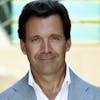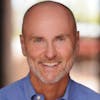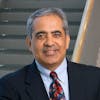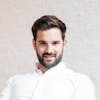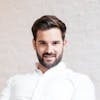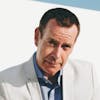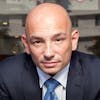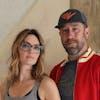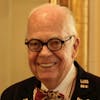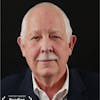Billionaire Wellness: How We Run The Wellness Resort Co-Founded by Larry Ellison (Oracle) - Alex Walterspiel, Sensei

In this episode, Alex Walterspiel, Co-President and Chief Operating Officer of Sensei, shares what it takes to provide exceptional hospitality focused on wellness to the most discerning guests in the world.
Listeners will learn about:
- The Founding of Sensei: Discover the origins of Sensei, co-founded by Larry Ellison and Dr. David Agus, and their mission to impact the world by preventing illness and improving health.
- Customized Guest Experiences: Understand how Sensei tailors each guest's stay to their personal intentions, whether it's for a relaxing vacation or a transformative two-month sabbatical.
- The Pre-Arrival Process: Gain insight into the pre-arrival questionnaire and subsequent conversations that help craft a unique itinerary for each guest.
- The Role of Sensei Guides: Learn about the highly educated professionals specializing in exercise physiology, mindset, or nutrition and how they collaborate with guests to achieve their wellness goals.
- The Sensei Way: Explore the evidence-led approach to well-being, focusing on the three interconnected paths of Move, Nourish, and Rest - and how they adapt to each individual's life journey.
- The Impact of the Pandemic: Reflect on how the pandemic has shifted the focus towards health and wellness and how people are re-evaluating their approach to life and self-care.
- The Hospitality Experience at Sensei: Discover how the hospitality aspect at Sensei is designed to support and enhance the wellness experience without overshadowing it.
Tune in for a deep dive into the future of wellness-focused hospitality and how Sensei is setting a new standard for the industry. Whether you're a hospitality professional or simply interested in wellness and self-improvement, this episode is sure to provide valuable insights and inspiration.
If you care about hospitality, check out the Masters of Moments podcast where Jake Wurzak interviews top leaders in hospitality. His conversations with Bashar Wali and Matt Marquis are a great place to start, but also check out his solo episodes such as how he underwrites investment deals and a deep dive into GP fees you know about.
Music by Clay Bassford of Bespoke Sound: Music Identity Design for Hospitality Brands
Alex: Sensei Wellness is a luxury wellness hospitality company. We customize the itinerary for any guest that comes to our retreat. So we don't have just a certain package format you need to fit into. We really work with you and your intentions as to what it is that you are trying to get out of the stay. And it could be that you just want a relaxing vacation. It could be that you would like to stay with us for a two-month sabbatical in order to refresh and re-energize yourself completely. So we really have a range of guests staying with us. And so when you first connect with us, we will actually take you through a pre-arrival questionnaire to really determine what it is that you were trying to work on. Obviously, you know, for someone who is looking to improve their overall fitness, it's a very different thing than someone who is trying to de-stress. Based on what we find out about you in that questionnaire and then a subsequent telephone conversation with one of our pre-arrival specialists, we start crafting an itinerary for you, which is then really where the guide role starts to be introduced. And so our Sensei guides are very highly educated professionals that specialize in three different areas, either exercise physiology, mindset, or nutrition. These people then will collaborate with you in crafting that itinerary to determine what you would like to do. The idea of the guides was born out of our approach to wellness, which we call the sensei way. For us, it is our evidence-led approach to well-being. And together with experts, we distill preventative health, science, data, and research into three paths that we call Move, Nourish, and Rest. And these paths are all connected. Again, it's not rocket science. There are other companies out there that have four principles or pillars or, you know, five components and a pyramid. For us, it's the Sensei way, and for us, it's Move, Nourish, and Rest, and we distill the three components together this way. And they exist together, they interact with each other, they are enriched by one another, and depending on where you are in your life journey, age, circumstances, profession, all of those things, there might be, or I could actually say there will be, one of these paths that is going to be more important than the other, and we craft a program around that. Now, when we talk about move, nourish, and rest, I want to also define what we actually mean by that. So move is really not just about exercise. Move is how we interact with the world. Yes, exercise is part of that, but it's also our surroundings. It's how we interact with art or with nature, how we connect with a tree, which, you know, I don't want to sound woo-woo, but that's an important component too, to connect with the world and interact with the world around us. Nourish absolutely has a nutrition component to it, but is a lot more than that. It really is how we fuel our mind and our body and how we basically re-energize. So obviously we all need food in order to keep our bodies going, but we need so much more. We need our minds to be fueled as well. And again, for everyone, that's a different path. How you refuel might look very different than how I refuel. And then lastly, rest. Again, rest is not just about downtime or sleep. It's how we recover and it's also how we grow. And that again, could be for you a 30 minute nap. For me, that would be a disaster. I can't do that. But for me, it's a walk around the block with my dog. And depending on how much rest or recovery I need, the length of the block or how many blocks I go for a walk with my dog depends.
Josiah: I heard an analogy recently where there's more and more people, high performance people that think of themselves as almost like Formula One race car drivers, and they are all about pushing their limits at work, a lot of their life. But then they're increasingly looking to hospitality as a way, almost like a pit stop or a way to recharge, a way to perform at their best. Are you seeing more and more demand in the market for this as you're leading this business?
Alex: Yeah, no question. I think that the pandemic had a lot to do with it. I think that all of us obviously were confronted with an experience that we've never had before. And there's a really, really great quote, and I unfortunately can't contribute it to someone, but I loved it. And that is that during a pandemic, I heard it that someone says, we're all facing the same storm for the first time in humanity. We're just in different boats. And some people found themselves in a very small boat that capsized and others found themselves on a super yacht that was perfectly fine, but their life was still turned upside down because they didn't know what to do with their time or were facing different circumstances. And so I guess the point of the quote is obviously that all of us were impacted. For all of us, it was a big storm. And I think there was a tendency towards a bigger focus on health and wellness before the pandemic. But without question, it accelerated during and after of people really starting to pay attention to say, you know, life is short. What am I doing? How do I make sure that I really maximize my being, not just by work and what defines our work identity, but who I am as a person? And how do I make sure that I stay healthy and with that live longer? I will tell you, I had the opportunity to experience a beta session for our rest and recovery program that we launched last year. And I was in a guide session with one of our mindset guides, and we talked about kind of how rest and recovery looks for me and what I do, and more importantly, why I don't do certain things that I really know I should be doing. And she said to me something that really resonated with me, and that was like, Alex, you run this company, don't you? And I said, yes. And she said, well, why don't you just look at your body as if you were running your body? Why don't you just look at yourself as the CEO of your body? And if you take that perspective, would you do certain things differently than what you're currently doing? And it floored me because I was like, oh my God, she's speaking my language. She's actually getting through to the approach because if she had just said to me, A, you know, this is why this is really good for you, is like, yeah, I know, I've read books, I've heard it, you know, I'm in this company, but she found a way to really connect. And I think that's another wonderful thing that our guides are able to do. They're trained very much in active and empathetic listening. So they will hear you for who you are, they will meet you where you are at, and they will find a way to translate our approach to wellness and well-being into language that actually resonates for you. So again, for me, she needed to find a way to talk to me through business language, how I was able to then personally find value in doing this.
Josiah: It's a great example. And I appreciate you sharing that because maybe the Formula One driver isn't the best analogy. It sounds that both for yourself and for your guests, the people that you're serving, there's this increased awareness of it almost sounds more like actualization or they're trying to reach their full dimensions in all areas of life. It's not necessarily about more and more output. Is that a fair assessment?
Alex: It is a fair assessment. And I think that business has changed. The industry has changed. I mean, it wasn't that long ago that, you know, you weren't a true professional unless you were able to say, I haven't taken a vacation in five years. And now, luckily enough, organizations have pivoted. I spoke with someone today where in her organization, she said, in order to qualify for your bonus potential, you have to take time off every quarter. That's amazing. That's a complete mind shift, right? It used to be that it was like the harder you work, the longer the hours that ultimately will determine your success and whether you're valued in an organization. And now it's the other way around. It's like, how well are you actually taking care of yourself? Because if you don't take care of yourself, ultimately you can't take care of others. If you're stressed, it's going to rub off on your organization. You're not going to perform at your peak. And I think that's why performance athletes fully realize that, you know, performance, optimal performance is really driven by, again, the combination of move, nourish and rest. We talked earlier about the fact that I did a triathlon. I learned so much about that combination needed because you can't do a long-distance event or be a performance athlete or operate as a peak mom, this doesn't have to just be about business or athleticism, this can be just about any role that you have in life, if you don't find balance between those three paths of move, nourish and rest.
Josiah: What's interesting to me is not only, I'm encouraged to hear more people talking about this. I feel like what you're doing at Sensei is far ahead of what many organizations are doing, but it also feels fundamentally hospitable to empower people, right? And to offer these sort of offerings to your guests. I'm very curious for you. You've held leadership roles in some of the best hospitality companies in the world before your work now leading Sensei and co-founded by Larry Ellison, you serve a clientele that is very selective and has experienced some of the best in the world. I imagine that's great, but I imagine it can also create a challenge of what do you offer? I think hearing you explain your offerings sounds very bespoke, but I wonder if you could elaborate a little bit more on how you decided which hospitality offerings to include in the overall Sensei experience.
Alex: We could go into a whole bunch of different details there, but I will start first of all by saying that the hospitality experience at Sensei is really not the main act, but the supporting act. So the main act is wellness and our wellness offerings, our programming, whether that's our guide sessions, our one-on-one sessions that we do in Mindset Nutrition or Fitness, whether it's the activity classes, whether it is the landscape and the nature that we have created or incorporated into our property design, whether it's the art inside, the sculptures outside, That is the main act, how that makes you feel. The hospitality component of it is actually designed to really not get in the way, if that makes sense. So we expect excellence of ourselves in everything that we do. We fully understand that perfection is a futile cause, but continuous improvement is something that we strive for. The philosophy of Kaizen is very much part of what we do. And on the hospitality side, we want to have the best experience that you can, whether that is in the interior design of your room, the linens that are on your bed, the quality of the terry, the small touches, the intuitive additions that we have added, and quite honestly, really the key thing of how we anticipate your needs. by making sure that we pay attention to what you're saying or doing or not saying or doing so that we can do that for you. But we don't expect and really don't think that anyone is going to write a raving review about how amazing the hospitality experience was. We just don't want that to get into the way, right? So if we have guests that say, I had an unbelievable wellness experience, and my goodness, the hospitality was flawless and supported it, fantastic, right? So I always say to the team, I want us to be so good that nothing in the hospitality experience distracts from the amazing wellness experience that our guests are going through.
Josiah: Does that make sense? It makes a lot of sense. And I think actually the best hospitality comes from a strong point of view. And so I appreciate you explaining that because I think others may say, oh, we have to be the best in every area. It seems the unique contribution that Sensei can make to the world is in the area of wellness. You're leading with that and you're making sure that everything else supports that. But you know what your mission is. You know what the North Star is, in a sense.
Alex: No question. And that's why when I said earlier, you know, we are a luxury wellness hospitality company. There's a big difference being that versus a hospitality company that offers wellness. No, we are a wellness company first and foremost.
Josiah: Alex, thanks so much for taking some time to chat. And I'll link in the show notes where people can learn more. I'm really excited to watch what you and your teams built at Sensei.
Alex: Well, thank you very much for giving me this opportunity. It was really fun talking to you.
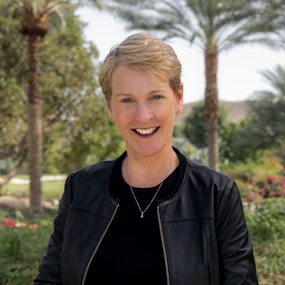
Alexandra (Alex) Walterspiel
Co-President & Chief Operating Officer
Alexandra Walterspiel is Co-President and Chief Operating Officer of Sensei, a wellness hospitality company that delivers enriching and evidence-led programming at its award-winning, ultra-luxe properties in Hawaii and California. In her role, Walterspiel not only oversees the business side of the organization, but also drives the company’s business development efforts with the goal to expand the reach of Sensei in both stand-alone retreats and wellness clubs, further positioning Sensei as the leader in the luxury wellness space.
With over 30 years in hospitality, she has an unparalleled background in the luxury and lifestyle segments of the industry, having previously worked with esteemed companies such as The Ritz-Carlton Company, Ian Schrager’s Morgans Hotel Group and Sage Hospitality. Prior to joining Sensei, Walterspiel owned and operated her own company, IMPRINT Hospitality.
Most Popular Episodes
Check these out:




